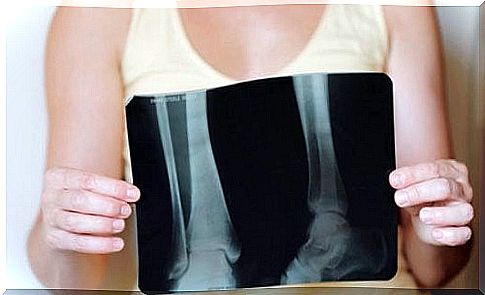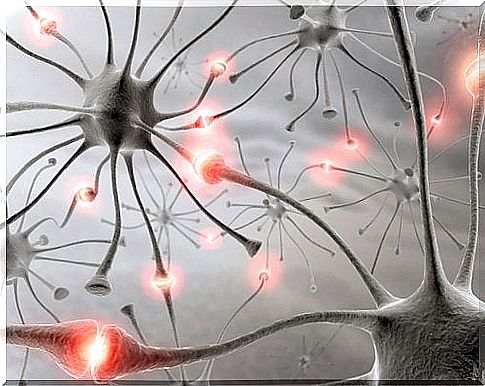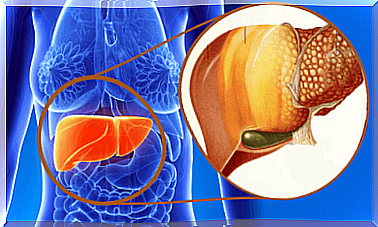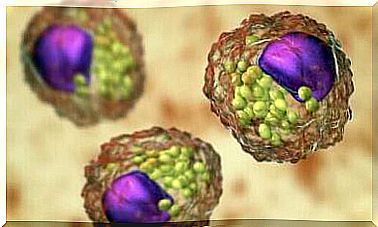10 Things You Need To Know About Insufficient Sleep
How do you usually sleep? Do you thrive in a deep and healing sleep? Or maybe you are one of those people who wakes up often during the night? Insomnia is without a doubt the worst disorder we can suffer from at night. And another aspect is that if it becomes chronic, it can lead to very serious health problems. Here are 10 things you need to know about sleep deprivation.
Continuous lack of sleep is something that we must treat in a responsible way. Never limit yourself solely to using the classic sleeping pills or benzodiazepines. Sometimes a simple change in our daily habits or our diet can give us good results.
Too little sleep can lead to weight gain

A recent study published in the journal Endocrine Society revealed something we should keep in mind. If we suffer from chronic insomnia or we do not achieve a healing sleep at night, our metabolism slows down and the functionality of our lymphatic system is changed.
The body stops filtering out enough toxins, the liver cannot cleanse itself effectively, and this causes us to gain weight little by little. However, the simple habit of going to bed at the same time every night and getting adequate rest for at least 6 to 8 hours is a wonderful gift we can give our health in general. And this will also help us lose weight!
2. How many hours should we sleep each night?
Usually this is individual. There are some people who need to sleep for 9 hours to feel ready in their head in the morning, and on the other hand, some people only need 6 hours. However, it is important that you keep these points in mind:
- You should never sleep for less than 6 hours
- The ideal time for adequate rest is to enjoy at least 5 hours of undisturbed sleep
- If you are an adult, it is not recommended that you sleep more than 11 hours at a time (unless you need to make up for many hours of sleep that you have previously lost). If you sleep for more than 11 hours, you may feel the opposite effect, ie you wake up tired.
Too little sleep can lead to loss of bone mass

A work published in the Journal of Bone and Mineral Research Review informs us of a very important aspect that you should be aware of:
- Too little sleep and sleep apnea have been linked to osteoporosis. Why? Sleep apnea causes our body to receive less oxygen, which causes inflammation, and as a consequence, changes our metabolism. All this affects our bone mass.
Too little sleep can lead to dementia
In this case, we must also add sleep apnea to insomnia that can cause this worrying danger to occur. Continuous oxygen deficiency night after night directly affects the health of the brain, producing small mini-strokes that sooner or later result in dementia. This is something very dangerous.
Remember that it is important that you consult your doctor if you suspect that you are suffering from sleep apnea.
5. What if we perform a small exercise?
Something as simple as taking a short walk for 15 minutes after dinner will not only help you achieve a good night’s sleep, but it will also help you sleep for several hours straight. Therefore, do not hesitate to get some exercise every day. It’s worth it!
6. The benefits of a little nap

Who said taking a nap is just for babies? Sleeping in the middle of the day for 15 to 20 minutes will help you regain the sleep you lost during the night, and at the same time, it will help you relax and become calmer at the end of the day.
7. The benefits of yoga or meditation
According to experts, those who usually suffer from higher levels of insomnia are people aged 50 years or older. Performing any form of relaxing exercise every day is very positive for everyone, but in the elderly the benefits are even greater.
If you are motivated to try yoga, for example, you will discover how to achieve a much deeper sleep, and further improve other areas of your life.
8. Insomnia overstimulates our brain

The brain needs the body to rest during the night, because it is at this time that it can perform its own functions such as organizing information, sending orders to the lymphatic system to detoxify the body, storing memories, dreaming…
If you stay awake and your brain is overstimulated, you will suffer from headaches, fatigue in the morning, lack of concentration…
9. Insomnia causes us to lose a “little bit” of our memories
Just as we have suggested before, the brain needs a good night’s sleep to organize information, to sort and log data and memories. If this does not happen, if you have a sleepless night, the brain can not perform any of these functions. Little by little, you will begin to notice that it is harder to remember information, such as appointments, conversations, dates… Sleep is so important !!
10. During the night we experience a real “brainwashing”

Surprised? It’s just an expression of a very exciting feature:
- During the night, our brain cells will shrink so that the spinal fluid can pass more freely. The job of this fluid is to carry away all the waste products that the cells have produced during the day. As you probably understand, this is something very important, and if we do not sleep properly, this function can not be performed, and we will suffer from an accumulation of toxins.









